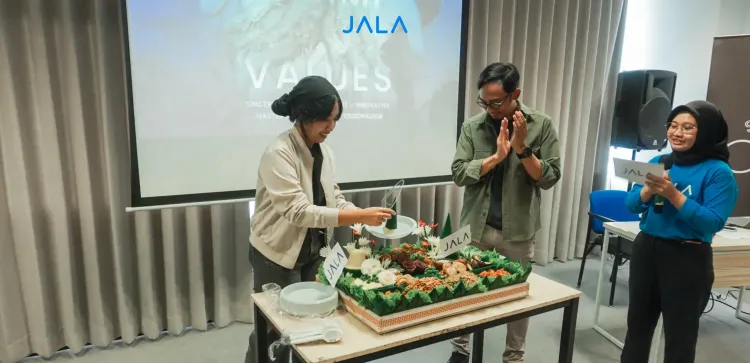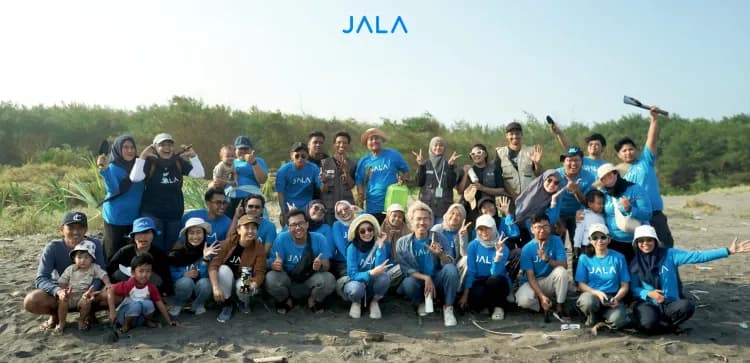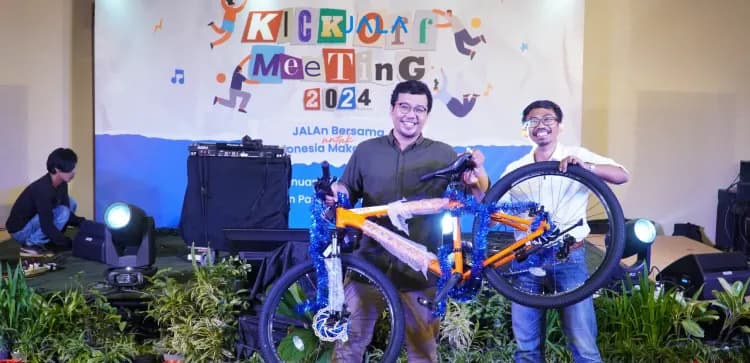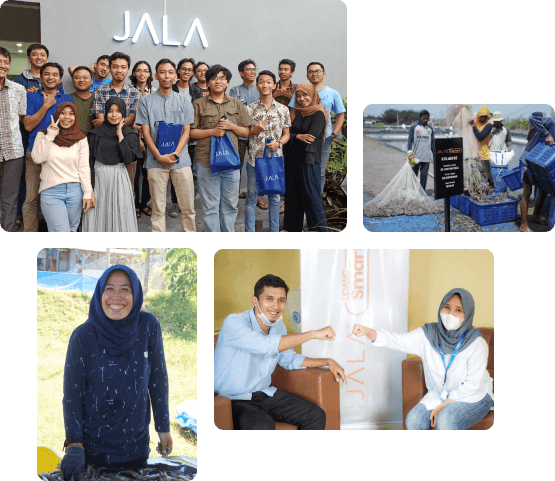
Behind the strategic, communicative, and detail-oriented nature often associated with legal work, there's another side of JALA’s Legal Team that often goes unnoticed: a warm work culture. Their work isn’t just about analyzing regulations or drafting contracts, they also continuously foster an open, trusting work environment, and stay adaptable in the face of challenges.
Read more: JALA Legal Team: Safeguarding Business, Upholding Compliance
Inside JALA’s Legal Team
The work culture in JALA Legal Team is highly collaborative and adaptive. Every week, they hold a weekly sync to map out weekly priorities and workloads, see the progress of tasks and projects, and identify potential obstacles that require cross-team escalation.
In addition, they often engage in brainstorming sessions, both internally and across departments. They maintain two-way communication to avoid getting caught in a position of only giving "legal verdicts", but to help build solutions.
Team bonding also becomes the key to their collaboration. Common forms of bonding they usually do include having lunch or dinner together after a big project, sending support for members’ personal achievements, and having catch-up calls.
Legal Field in the Shrimp Industry
The legal field, especially in the aquaculture industry, is both exciting and full of opportunity. The industry is growing rapidly, and the need for adaptive, critical, and solution-oriented legal support is on the rise.
In the aquaculture industry, especially shrimp farming, regulations related to the environment and business licensing tend to be complex. The Legal Team must have a deep understanding of environmental laws. Additionally, the shrimp sector is governed by specific sectoral regulations from the Ministry of Marine Affairs and Fisheries.
The Legal Team plays a key role in managing partnerships between the company and local farmers, which are often unique in nature, such as involving profit-sharing schemes, technical assistance, or exclusive purchasing agreements. This requires drafting partnership contracts that are flexible yet still protect the company’s legal interests.
Moreover, shrimp farming often involves informal or daily labor, which presents its own set of challenges for the Legal Team regarding employment agreements, workers rights, and occupational health and safety standards. Land-related issues are also a major concern, as many farms are located in coastal areas that are uncertified or border state or customary land, increasing the risk of disputes. The Legal Team must proactively ensure land legality and compliance with coastal spatial planning.
A Message for Aspiring Legal Professionals Working in a Legal Team within the shrimp industry requires a broad and in-depth understanding of sectoral regulations, environmental sensitivity, and the ability to adapt to both technical and natural challenges. Therefore, JALA’s Legal Team shares a few tips for you who are interested in this path:
- Understand the aquaculture business deeply, from day-to-day operations to the broader ecosystem.
- Master cross-sector regulations, from environmental, trade, to marine permits.
- Build strong communication and cross-functional collaboration skills.
- Learn in the field as regulations will come alive when we understand the real-world context.
- Work with heart because legal work is about making an impact on the ecosystem and community.
Join us as a Warga JALA
The Legal Team is just one of multiple strategic positions at JALA. Fueled by their strong interest and supported by numerous benefits as Warga JALA, JALA’s Legal Team carries out their work with enthusiasm, and it shows in their achievements.
Interested in becoming a Warga JALA? Check the vacancies currently open on JALA career page!





